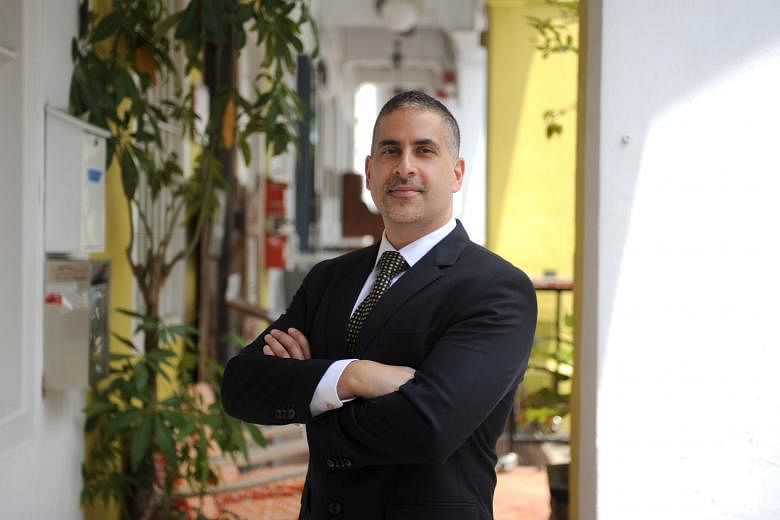EARLY CANCER DETECTION

Biotech company MiRXES, co-founded by Associate Professor Too Heng-Phon and Dr Zhou Lihan, has developed technology kits that can detect early-stage gastric cancer, breast cancer and lung cancer from blood samples.
The first of their kind, these tests will complement existing procedures to improve their sensitivity and accuracy. The gastric cancer kit is undergoing clinical validation with 7,000 patients, in partnership with local hospitals and clinicians. MiRXES hopes to launch the tests upon regulatory approval.
MAPPING IMMUNE SYSTEMS

Biotechnology company Immunoscape has come up with a technique to create maps of T-cells, which help to regulate the body's immune response to diseases. There are millions of such cells, which can kill tumours or viruses.
This process, known as immune profiling, also helps to identify biomarkers - molecules or genes linked to an illness - and measure how well a patient responds to different kinds of treatment.
Immunoscape is in the process of raising $3 million in a Series A round of funding, and is working with National Cancer Centre Singapore on research to determine how well cancer therapies work on different patients and how their immune system responds.
MAJOR STUDY ON KIDS' HEALTH
Growing Up in Singapore Towards Healthy Outcomes (Gusto) is a long-term study that seeks to find out the effects of maternal health and lifestyle on children's growth.
The study is a collaboration between the National University Health System, KK Women's and Children's Hospital, and the Agency for Science, Technology and Research's Singapore Institute for Clinical Sciences.
A team of scientists has tracked a cohort of more than 1,000 children - who are now in lower primary school - for the last nine years. Findings from the Gusto study have changed national health policy, including screening all pregnant women for gestational diabetes.
JAPAN DEAL FOR MEDTECH FIRM

Sekisui Medical, a diagnostics company based in Japan, has acquired home-grown firm Veredus Laboratories, a molecular diagnostics kit maker, in one of the largest exits in the local medtech space.
Veredus Laboratories was started by Dr Rosemary Tan in 2003 to commercialise locally developed technologies that make sense of the human genetic make-up.
The size of the deal was not disclosed but market sources said Veredus could be worth around US$83 million (S$113 million), which is the amount Luminex paid for molecular diagnostics firm Nanosphere in 2016.
LISTING ON TAIWAN EXCHANGE
Singapore-based biotech company Aslan Pharmaceuticals develops drugs for cancer types that are more common in Asia - namely biliary tract cancer, breast cancer and gastric cancer.
The clinical-stage company raised US$33 million through an initial public offering (IPO) on the Taipei Exchange last year, valuing it at US$300 million. Earlier this year, it filed for a proposed IPO in the United States. Its headquarters are here and it has offices in Taipei, Australia and Shanghai.


